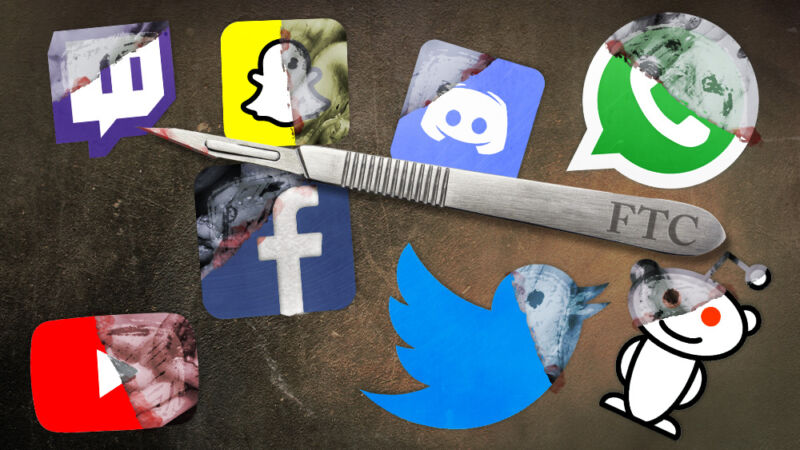
The Federal Trade Commission is stepping up its digital privacy work and has asked just about every major social media platform you can think of to explain what personal data it collects from users and why.
The requests for information went out today to nine platforms (or their parent companies, where applicable), including Discord, Facebook, Reddit, Snapchat, TikTok, Twitch, Twitter, WhatsApp, and YouTube, according to the press release. The companies that receive the orders have 45 days to explain to the FTC:
- How social media and video streaming services collect, use, track, estimate, or derive personal and demographic information
- How they determine which ads and other content are shown to consumers
- Whether they apply algorithms or data analytics to personal information
- How they measure, promote, and research user engagement
- How their practices affect children and teens
A sample order (PDF) shows the depth and specificity of the information the FTC is requesting from each firm, including extremely granular data about monthly and daily active users, business and advertising strategies, and potential plans for acquisitions or divestments. Interestingly, each firm is also required to say how many users it has inaccurate demographic information for and how it accounts for targeted advertising, including inaccurately targeted advertising. In other words, among other things the FTC wants to know: do you give advertisers their money back if you don't actually target the groups they're trying to reach?
The investigations are not part of any specific wrongdoing probe... at least, not right now. Under Section 6(b) of the FTC Act, the commission has authority to conduct certain kinds of wide-ranging studies, not tied to a specific law enforcement proceeding or suspicion. The review of Big Tech's smallest acquisitions, which the FTC began in February, is another 6(b) study.
The commission voted 4-1 in favor of beginning the study. Three commissioners—Rohit Chopra, Rebecca Slaughter, and Christine Wilson—issued a joint statement (PDF) in support of the investigation.
"Social media and video streaming services have become almost unavoidable in today's modern world," particularly in the socially distanced pandemic era, the commissioners wrote. "Despite their central role in our daily lives, the decisions that prominent online platforms make... remain shrouded in secrecy. Critical questions about business models, algorithms, and data collection and use have gone unanswered.
"Never before has there been an industry capable of surveilling and monetizing so much of our personal lives," the commissioners continued. To that end, the 6(b) study is "a step toward getting much-needed clarity" about what the firms all do, how, and why.
Commissioner Noah Phillips, who voted against the study, issued a separate dissent (PDF).
The orders are "an undisciplined foray into a wide variety of topics, some only tangentially related to the stated focus of this investigation," Phillips said, arguing that the probe was a waste of FTC resources and would not provide the public with valuable information or address issues of consumer privacy.
“Special attention to children”
Massachusetts Sen. Edward Markey (D-Mass.) issued a statement in support of the investigation. "No comprehensive investigation of these websites would be complete without special attention to children and teens, a uniquely vulnerable population online," Markey said. "I am glad that the FTC heeded my calls to issue these orders, and I thank my bipartisan partners who joined me in advocating for this investigation."
Markey, together with Sen. Richard Blumenthal (D-Conn.) introduced a bill back in March that would specifically address the "non-transparent ways" digital media apps and platforms market to and collect information from users ages 16 and under.
reader comments
72